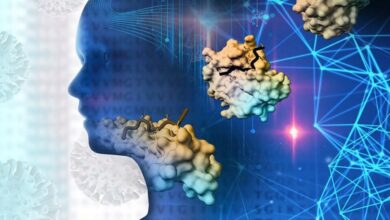Exploring the Power of Machine Learning in Healthcare

Table of Contents
- Introduction to Machine Learning in Healthcare
- Critical Areas of Machine Learning Application in Healthcare
- Benefits of Machine Learning for Patients and Providers
- Data Privacy and Ethical Considerations in Machine Learning
- Machine Learning and the Future of Global Health Disparities
- Training Healthcare Professionals for a Machine Learning-driven World
- Patient Outcomes and Satisfaction in the Age of Machine Learning
- Looking Ahead: Innovations on the Horizon of Healthcare Machine Learning
Key Takeaways
- Machine Learning (ML) is spearheading advancement in healthcare by improving diagnostics, treatment personalization, and operational efficiency.
- Data privacy and ethical handling of patient information are critical as healthcare systems integrate ML technologies.
- Comprehensive education and training for healthcare professionals are required to leverage ML effectively.
- Machine learning is a cornerstone in reducing global health disparities and improving patient satisfaction.
Introduction to Machine Learning in Healthcare
The revolution brought by machine learning in healthcare is a testament to the unparalleled technological advancements that are poised to redefine the industry. Machine learning is a form of artificial intelligence that improves itself over time through complex algorithms and data-driven methods. It can improve operational processes in healthcare and enhance patient care, diagnostic accuracy, and treatment effectiveness. Machine learning systems can identify patterns and correlations that are complex for humans to detect by analyzing large volumes of healthcare data collected daily.
Critical Areas of Machine Learning Application in Healthcare
The value of machine learning in healthcare is most evident when we examine its impact on diagnosis and treatment plans. Advanced algorithms excel in image recognition tasks, enhancing the ability of healthcare professionals to diagnose diseases from medical images with greater accuracy and expediency. This is particularly critical in high-risk specialties, such as oncology, where early detection can substantially affect outcomes. Personalized medicine is another domain that has been transformed by machine learning technology. By assimilating and interpreting genetic information alongside clinical data, artificial intelligence enables tailoring treatments to the individual patient’s genetic profile, marking a dramatic shift from one-size-fits-all therapies to those that recognize and respect the uniqueness of each patient’s condition and response patterns. This personalization of care is extended to the promising realm of pharmacogenomics and drug development, where utilizing ML’s predictive models facilitates the discovery of novel pharmaceuticals with unimaginable efficiency.
Benefits of Machine Learning for Patients and Providers
For patients, the incursion of machine learning technologies into healthcare has opened doors to a future where healthcare is more accurate, predictive, and personalized. When bolstered by machine learning algorithms, diagnostic accuracy drastically reduces misdiagnosis cases and improves patient outcomes. Machine learning offers timely and insightful data analysis for healthcare providers, freeing them from time-consuming manual tasks. This improves operational efficiency, reduces the likelihood of human error, and allows more time for direct patient care.
Data Privacy and Ethical Considerations in Machine Learning
The use of machine learning in healthcare is not without concerns, especially surrounding the sensitive nature of medical data. There is an ongoing debate about the fine line between harnessing the power of ML for good and maintaining the privacy and dignity of the individual. The ethical problems posed by machine learning revolve around bias, consent, and transparency. Policymakers, healthcare leaders, and technologists must work collaboratively to establish regulations and frameworks that safeguard patient data without stifling the innovation that machine learning can provide. Developing ethical guidelines that can adapt to the ever-changing landscape of AI in healthcare is both a challenge and a necessity as we forge ahead into this new epoch of medicine. With the proper governance and oversight in place, the utilization of patient data can be ethically managed for the greater good, a point that healthcare entities must prioritize as they integrate ML into their operations.
Machine Learning and the Future of Global Health Disparities
The global healthcare landscape is uneven, with resources varying drastically from country to country and even within regions. Machine learning offers hope for those underserved by the current system, providing tools that can extend diagnostic and treatment opportunities regardless of geographic location. By utilizing machine learning, healthcare practitioners in resource-poor areas can gain access to diagnostics and predictive tools that might otherwise be unavailable, leveling the playing field for patients worldwide.
Training Healthcare Professionals for a Machine Learning-driven World
In preparation for this paradigm shift, it is crucial to nurture a workforce well-versed in the tools of their trade, which now include machine learning applications. Medical and healthcare curriculum developers must integrate AI and big data analytics education into their programs to ensure that new healthcare professionals are equipped to work in this digitized environment. Furthermore, ongoing education and professional development opportunities are vital for the existing workforce to adapt to these changes.
Patient Outcomes and Satisfaction in the Age of Machine Learning
Machine learning’s assistance in healthcare goes beyond operational benefits for providers; it directly influences patient experiences and clinical outcomes. The advancement in diagnostic tools, treatment protocols, and predictive models results from AI systems’ ability to process massive amounts of data and learn over time. Patients stand to benefit from these advancements through more personalized and effective health interventions. As machine learning systems grow more intricate and refined, they are set to transform multiple aspects of healthcare—from direct patient care to backend administrative tasks—heralding an era where efficiency, precision, and patient-centered care are inextricably linked.
Looking Ahead: Innovations on the Horizon of Healthcare Machine Learning
The future is bright for machine learning in healthcare, with ongoing research and investment driving innovation across multiple medical and technological frontiers. New diseases will be diagnosed with increasing accuracy, treatments will be adapted to the genetic profiles of individual patients, and healthcare providers will be able to anticipate and respond to health crises with unprecedented speed. To make this future a reality, continued support, and funding will be essential in fostering an environment where machine learning can flourish and sustain the momentum of progress within the healthcare sector.




